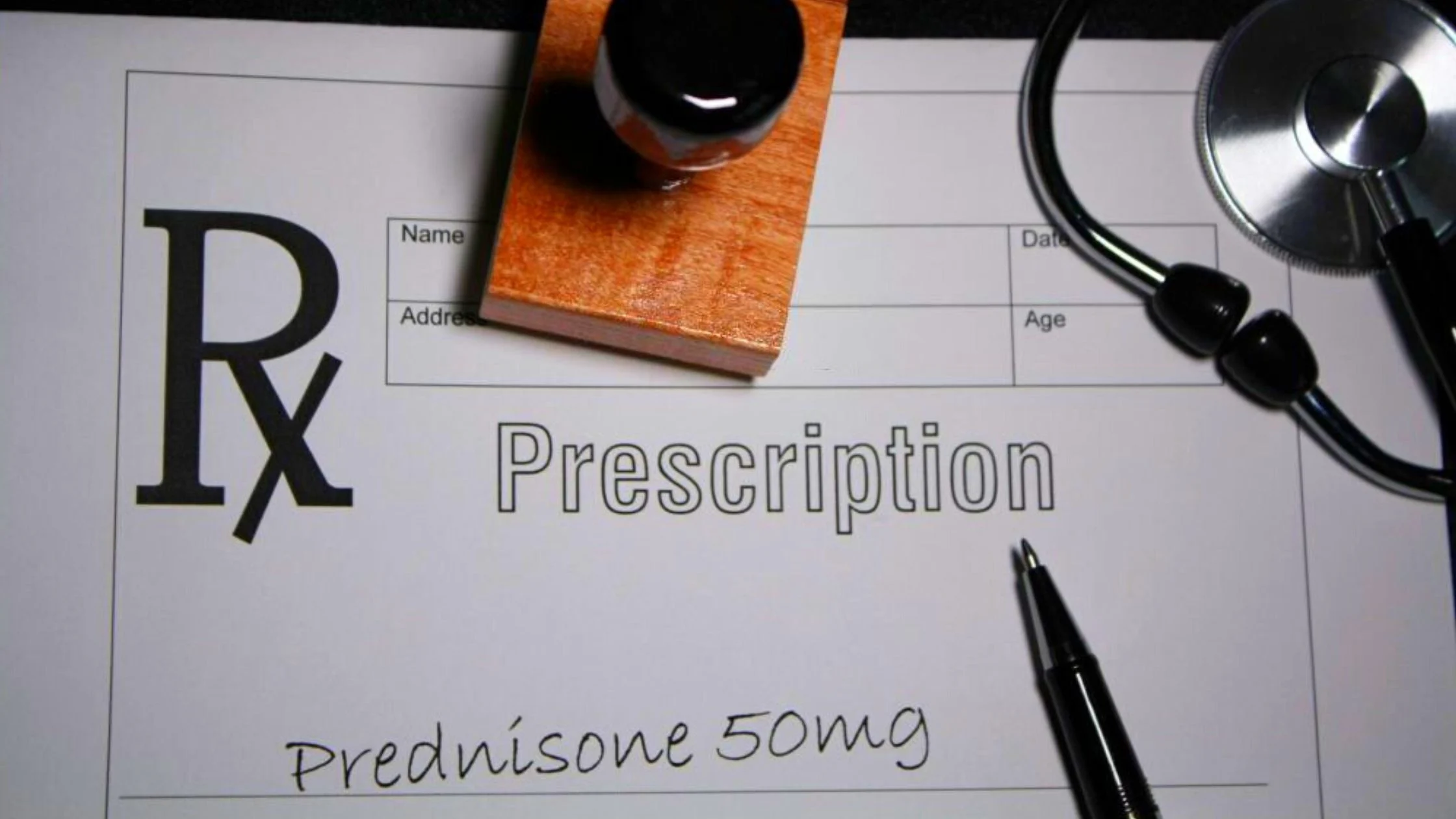Prednisone Weight Gain: How Can It Be Controlled?

If you had allergic reactions or Asthma, you might be familiar with the medication Prednisone. Prednisone is a prescription drug usually administered to treat certain allergic reactions, arthritis, kidney disorders, rashes, etc. While being a helpful drug that can reduce inflammation in your body, it can at the same cause some serious side effects too. One of such serious side effects caused by Prednisone is weight gain. Studies show that around 70% of people who use medications such as Prednisone suffer from serious side effects such as weight gain.
In the following article, you can find an overview of Prednisone, its uses, side effects, and how it is related to weight gain. Before concluding, the article also suggests you some tips to relieve the weight gain symptoms caused by Prednisone.
What Is Prednisone?
Prednisone is a kind of steroid medication that was first patented in 1954 and prescribed for medicinal use in the United States in 1955. It falls under the glucocorticoid or glucocorticosteroids category which is a subcategory of the steroid hormones. Glucocorticoid is a portmanteau of the words, glucose, cortex, and steroid.

As the name suggests, it plays a major role in the maintenance of glucose metabolism and is produced from the adrenal cortex. Prednisone is an immunosuppressive drug that can prevent certain activities of the immune system such as inflammation. Being a prodrug where the initial status of it can be inactive, it has to be metabolized by the liver to prednisolone for proper functioning. Prednisone can be administered as an injection, or pill or can also be inhaled.
Uses of Prednisone
Prednisone works by reducing the activity of certain aspects of your immune system. The major function of steroids such as Prednisone is to decrease the impact of inflammation and swelling on your body. Some of the major uses of this medication are provided below:
- Asthma: A study published by Canadian family physician Médecin de famille canadien suggested that prednisone can be used to treat acute asthma exacerbations in pediatric patients. Doctors usually prescribe corticosteroids such as prednisone to decrease the inflammatory response that follows an asthma attack.
- Gout: Gout is common arthritis inflammation that creates painful joints. One of the main reasons behind gout is an excess of uric acid in your body. A study published in the Annals of Internal Medicine in 2016 elucidated that prednisone can be effective in providing analgesic effects in treating acute gout.
- COPD: Also known as Chronic Obstructive Pulmonary Disease, COPD is an inflammatory lung disease that can prevent airflow in the lungs. Steroids such as Prednisone can help decrease inflammatory compounds known as eosinophils found in your lungs.
- CIDP: CIPD aka Chronic inflammatory demyelinating polyneuropathy is a neurological condition where you experience weakness in your arms and legs. A study published in the Journal of Neurology in 2018 showed that corticosteroids such as prednisone can effectively treat CIDP.
- Crohn’s disease: Crohn’s disease is a medical condition characterized by an inflammation in your bowel. Some of the symptoms can be abdominal pain, fatigue, weight loss, etc. Steroids such as prednisone work by reducing inflammation caused by the immune system of your body.
- Kidney disorders: Certain kidney disorders such as lupus nephritis, systemic vasculitis, etc can be treated using medications such as Prednisone. Corticosteroid therapy is found effective in treating patients who are affected with proteinuric kidney diseases.
Side effects of Prednisone
Like every medication out there, Prednisone also poses some side effects. Some of these side effects can be so common and mild, while some can be rare and serious. If you experience some serious side effects due to Prednisone, contact your doctor immediately.
Some of the common side effects of Prednisone include:
- Nausea
- Acne
- Insomnia
- Dizziness
- Sleep problems
- High blood sugar levels
- Agitation and anxiety
- Blurred vision
Some serious side effects of Prednisone include:
- Allergic reactions such as skin rashes, swelling, itching, etc
- Gastrointestinal issues such as Gastritis, gastric ulcer formation, etc
- Bone loss such as osteonecrosis.
- Cardiovascular issues
- Infections which can be mild or serious
- Elevated blood sugar levels
- Skin problems include acne, excess hair growth, face redness, etc.
Prednisone And Weight Gain: What Is The Connection?
A study published in Arthritis and Rheumatism journal in 2008 elucidated that there is a connection between medications such as Glucocorticoids and weight gain. Prednisone is a medication that falls under this category and poses weight gain as one of its serious side effects. Along with weight gain, it can result in fat accumulation around various parts of your body, especially your face, the back of your neck, and the abdomen.
According to medical experts, the longer you consume medications such as Prednisone, the higher the chance of weight gain will be. There are three ways in which Prednisone causes weight gain in your body. They are listed below:

👉 It enhances your appetite: When you consume Prednisone, it imitates the activity of the cortisol hormone in your body. Cortisol is known as the stress hormone which can stimulate and increase appetite. When you consume Prednisone, your hunger spikes up and thereby it results in unwanted cravings and eating. Another reason that Prednisone causes weight gain is by disrupting your sleep cycle. When your normal sleep cycle is hindered, you naturally feel more hungry and this results in weight gain.
👉 It causes water retention: Prednisone consumption can lead to high levels of fluid retention in your body. This is because it interferes with the hormone aldosterone, which plays a crucial role in regulating the water balance in your body. Also, it disrupts the salt balance which is maintained by your kidneys. This causes your body to accumulate sodium which can direct toward fluid retention in your body. When you have increased water retention in your body, it can lead to swelling in the hands, feet, and face.
👉 It can cause fat redistribution: Prednisone can lead to abnormal fat accumulation in various parts of your body such as the face, back of your neck, and stomach. The fat that gets accumulated around your face is known as moon face and when it is collected around your abdomen and upper back it is called buffalo hump.
Also read: Vraylar Side Effects: Could Weight Gain Be A Side Effect Of Vraylar?
Tips to control weight gain caused by Prednisone
Weight gain is one of the most common side effects caused by Prednisone. Many studies have found that long-term use of this medication can result in weight gain. There are some methods you can adopt to control the weight gain caused by Prednisone. Some of them are listed below:
✅ Adopt a healthy diet: Choosing a diet that can be favorable for your health can benefit in reducing the weight gain caused by Prednisone. Make sure to choose foods that are low in sodium and high in potassium. Some of the low-sodium food items are fresh or frozen beef, eggs, peanut butter, dry peas, etc. Also include foods that are high in potassium such as dates, cantaloupe, bananas, etc.
✅ Incorporate exercise into your daily routine: You can include some basic exercises such as walking into your daily routine to reduce the weight gain symptoms caused by the medication.
✅ Reduce the dosage: If medications such as Prednisone cause you weight gain, ask your doctor to reduce the dosage. Do not try to change the dosage of your own. Also, consult your doctor regarding the duration and ask for limiting the period of the dosage.
✅ Drink water: One of the effective ways to beat the weight gain caused by Prednisone is to hydrate often. When you drink water often, it can reduce the cravings and appetites caused by medications such as Prednisone. Water can keep you full for a longer time and can improve your digestion too.
✅ Do some meal planning: Meal planning can help you to reduce the unwanted food items from your normal diet. It can help you to choose healthy food items and reduce the intake of highly processed and sugary foods in your diet.
Final Thoughts
From the points mentioned above, one can understand that Prednisone can cause weight gain if taken for a longer period. As a corticosteroid medication, Prednisone is widely used to treat certain allergic disorders, rheumatism, Crohn’s disease, etc. It can reduce the abnormal activities of your immune system such as reducing inflammation. Along with side effects such as nausea, anxiety, and sleep disorders, Prednisone can also cause weight gain.
Being a steroid medication, it can mimic the working of cortisol in the human body and thereby increase appetite. Another way that Prednisone causes weight gain is by increasing fluid retention and aiding in fat redistribution. By adopting healthy lifestyles such as sticking to a healthy diet and exercise one can prevent the weight gain caused by Prednisone.
FAQs
Studies show that consuming 5-10 mg of Prednisone daily can lead to an increase in 4-8% increase in body weight over 2 years.
Yes. Prednisone can hinder the function of the hormone, leptin which signals your brain when you are full. So Prednisone can affect this process and make you less full even after you had your meal.
Patients who take Prednisone can experience weight gain within six months of its consumption.
If you have stopped taking the medication, your body can go back to its natural state within weeks or months.
It is better if you consult your doctor before taking Prednisone and explain any medical conditions you already have.





